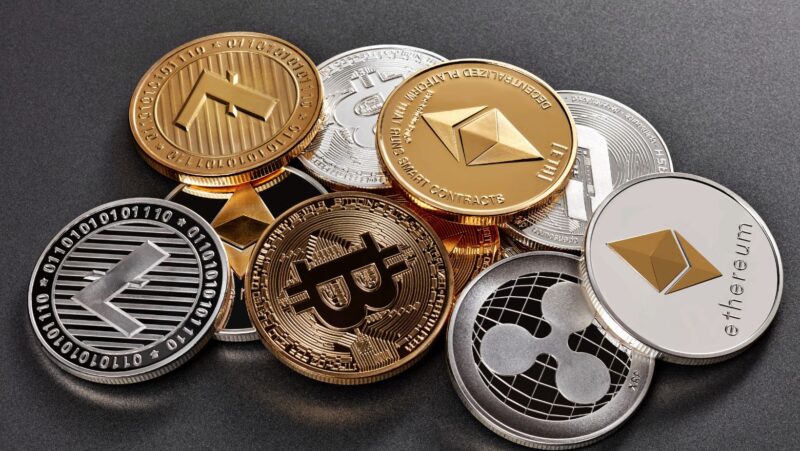Blockchain technology has often been synonymous with cryptocurrencies like Bitcoin and Ethereum. However, as the technology matures, it has become increasingly clear that its applications extend far beyond digital currencies. One of the most significant developments in this space is the rise of crypto loans, including a BTC loan, where digital assets like Bitcoin can be used as collateral for borrowing. These innovations are just the beginning of a much broader movement that is reshaping industries, disrupting traditional systems, and unlocking new possibilities in sectors such as finance, supply chain, healthcare, and even governance.
To fully understand the potential of blockchain beyond cryptocurrencies, it’s essential to explore how the technology works and the various ways it is being adapted and utilized.
What Is Blockchain?
At its core, blockchain is a decentralized and distributed ledger technology that records transactions in a secure, transparent, and immutable way. Unlike traditional databases, which are controlled by central authorities like banks or corporations, blockchains operate in a peer-to-peer network, where data is stored across multiple nodes. Each “block” in the chain contains a list of transactions, and once a block is added to the chain, it cannot be altered, providing a high level of security and trust.
While cryptocurrencies are the most well-known use case of blockchain, the technology itself is not limited to financial transactions. Its features of decentralization, immutability, and transparency have vast potential for a wide range of industries.
Blockchain and Crypto Loans: A New Paradigm in Finance
Before diving into other blockchain innovations, it’s worth taking a moment to consider how blockchain is already transforming the financial sector. Crypto loans are one example of how blockchain is extending its reach beyond traditional currency transactions.
BTC loans, for instance, allow individuals to use their Bitcoin as collateral to borrow traditional fiat money or stablecoins, without needing to sell their holdings. This offers significant benefits, including the ability to leverage crypto holdings while still maintaining ownership of the asset.
The emergence of crypto lending platforms, which rely on smart contracts and blockchain technology to facilitate these loans, is making it easier for both individuals and businesses to access liquidity without going through traditional financial institutions. In many ways, BTC loans and other crypto-backed lending mechanisms are helping bridge the gap between the traditional financial world and the decentralized finance (DeFi) ecosystem.
One promising development in blockchain technology is Abstract Chain, which explores innovative applications beyond cryptocurrencies, focusing on scalability and interoperability across various industries.
Beyond Cryptocurrencies: Blockchain’s Expanding Potential
While blockchain’s initial impact was felt primarily in the world of digital currencies, its applications are now rapidly expanding into many other sectors. Here are some of the most promising innovations beyond cryptocurrencies:
Supply Chain Management
Blockchain has the potential to revolutionize supply chain management by improving transparency, traceability, and efficiency. In traditional supply chains, goods are often tracked across multiple intermediaries, each with its own record-keeping system. This creates opportunities for errors, fraud, and inefficiencies.
By using blockchain, companies can create a single, immutable record of each transaction in the supply chain. This record can be shared and accessed by all relevant parties, ensuring transparency and reducing the chances of fraud. For example, IBM’s Food Trust blockchain allows producers, retailers, and consumers to trace the journey of food products from farm to table in real time. This enhances food safety, reduces waste, and builds trust between suppliers and consumers.
Smart Contracts and Decentralized Finance (DeFi)
Smart contracts, powered by blockchain, enable the creation of self-executing contracts where the terms are directly written into lines of code. These contracts automatically execute when predefined conditions are met, without the need for intermediaries such as lawyers or notaries.
In the context of Decentralized Finance (DeFi), smart contracts allow for the creation of financial products and services—like lending, borrowing, and trading—without the need for traditional banks. Platforms like Uniswap and Aave are leading the charge, offering decentralized exchange services, crypto lending, and yield farming. The growth of DeFi has the potential to democratize financial services, giving anyone with an internet connection access to financial products that were once reserved for the wealthy or those with bank access.
Healthcare and Medical Records
In healthcare, blockchain can address issues related to data privacy, security, and interoperability. Medical records are often stored across disparate systems that do not communicate with one another, creating inefficiencies and potential security risks. Blockchain can provide a secure, decentralized way to store medical records, ensuring that patients’ data is private, secure, and easily accessible by authorized individuals.
For example, projects like Medicalchain are already using blockchain to enable secure sharing of patient data across different healthcare providers, giving patients more control over their medical information and ensuring that only authorized parties can access it.
Governance and Voting Systems
Blockchain has the potential to transform governance, particularly in the realm of voting systems. Traditional voting systems are often criticized for being vulnerable to fraud, manipulation, and inefficiency. Blockchain’s transparency and immutability could provide a solution by ensuring that votes are securely recorded, easily verified, and tamper-proof.
Several pilot projects have already explored the use of blockchain for voting, such as Follow My Vote, which offers a secure and transparent online voting system. This could pave the way for more inclusive and trustworthy democratic processes, reducing the chances of election fraud and increasing voter confidence.
Intellectual Property and Digital Rights Management
Another promising application of blockchain is in the area of intellectual property (IP) protection and digital rights management. Blockchain can provide an immutable record of ownership for digital assets, ensuring that creators are properly compensated for their work and that their intellectual property is protected from piracy.
For example, platforms like Ascribe use blockchain to allow artists to register and track ownership of their digital artwork, while MediaChain uses the technology to help creators manage their intellectual property in the music industry.
Identity Verification and Digital IDs
Blockchain can also play a crucial role in the development of secure and verifiable digital identities. By providing a decentralized method for verifying identity, blockchain can offer a more secure and privacy-respecting alternative to traditional methods of identification, which often rely on centralized databases that can be hacked or misused.
Projects like uPort and SelfKey are already working on blockchain-based digital identity solutions, enabling individuals to have full control over their personal data and decide who can access it.
Conclusion: The Expanding Horizons of Blockchain
While blockchain’s role in the cryptocurrency space has garnered the most attention, its potential extends far beyond digital currencies. From crypto loans to applications in supply chain management, healthcare, governance, and beyond, blockchain is set to revolutionize many industries by enhancing transparency, security, and efficiency.
The rise of decentralized finance (DeFi), smart contracts, and innovative blockchain solutions is just the beginning. As the technology continues to evolve, we can expect more groundbreaking use cases that will transform the way we interact with data, assets, and institutions. For investors, businesses, and innovators, the future of blockchain offers endless possibilities and opportunities to be part of a technology that is shaping the next generation of digital infrastructure.












